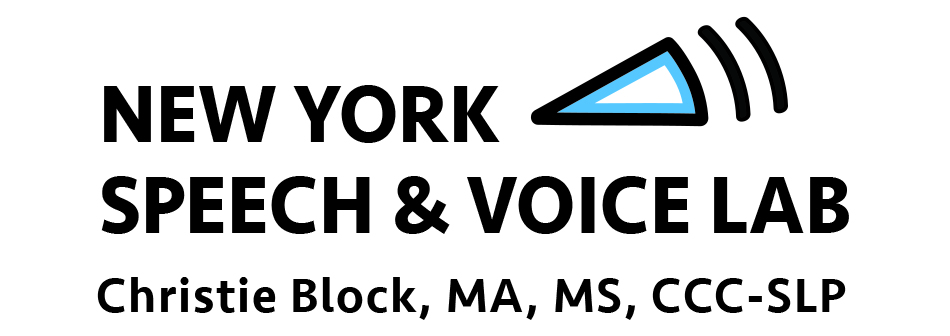Voice disorders
Many people develop a voice problem related to an upper respiratory infection, other laryngeal changes, or phonotraumatic behaviors, such as yelling or speaking for long periods. Online meetings or speaking over noise also pose particular challenges. It is important to see an laryngologist if you notice changes in your voice to rule out any physical pathology that may be contributing to your voice problem. I address unwanted vocal behaviors that have developed due to challenges from speaking demands and/or vocal pathology or illness. Some include:
Vocal fold masses or growths, such as nodules, polyps, or cysts
Laryngopharyngeal reflux
Paresis, paralysis, or vocal fold bowing
Muscle tension dysphonia
Vocal aging
Scarring or sulcus vocalis
Puberphonia (pitch that never lowered enough with puberty)
Spasmodic dysphonia
Paradoxical vocal fold motion, which can manifest as a cough, breathing difficulty, or a choking sensation
Refer to the neurological disorders page for other illnesses
With a perceptual-acoustic speech-voice evaluation, I can determine whether the way you speak is a cause or an effect of the voice problem (or both) and whether therapy is a good treatment option for you. I may also need a videostroboscopy exam to visualize the larynx to rule out any anatomic or physiologic problem. Some areas to work on in therapy include vocal hygiene, resonance, breath support, breath control, and relaxation of the tongue, jaw, face, neck, and shoulders. I coordinate your therapy with other relevant interventions that you may be receiving, such as medicine, surgery, or physical therapy. Should you be in need of voice surgery, my therapy can serve as a rehabilitative supplement to surgery as a way of quickening and maximizing the results, and avoiding recurrence of the problem.
If you are a professional voice user (singer, actor, teacher, or professional whose voice is a vital part of your job), please refer to the professional voice page of this website for more information.
Quick tips
Acid reflux is commonly associated with hoarseness, and it can occur in the throat even if you don’t feel heartburn or stomach symptoms. Answer questions on the Reflux Symptom Index to consider symptoms that may suggest that you have a reflux problem.
Emotion, stress, reduced water intake, and insufficient sleep can all affect the voice. Think about how these factors may coincide with the voice changes you are experiencing.
Avoid chronic throat clearing, because it can hurt your voice. Instead, try swallowing your saliva or sipping water to get rid of the irritation you are feeling.
Answer questions on the Voice Handicap Index to pinpoint symptoms that may indicate that you have a voice problem.
